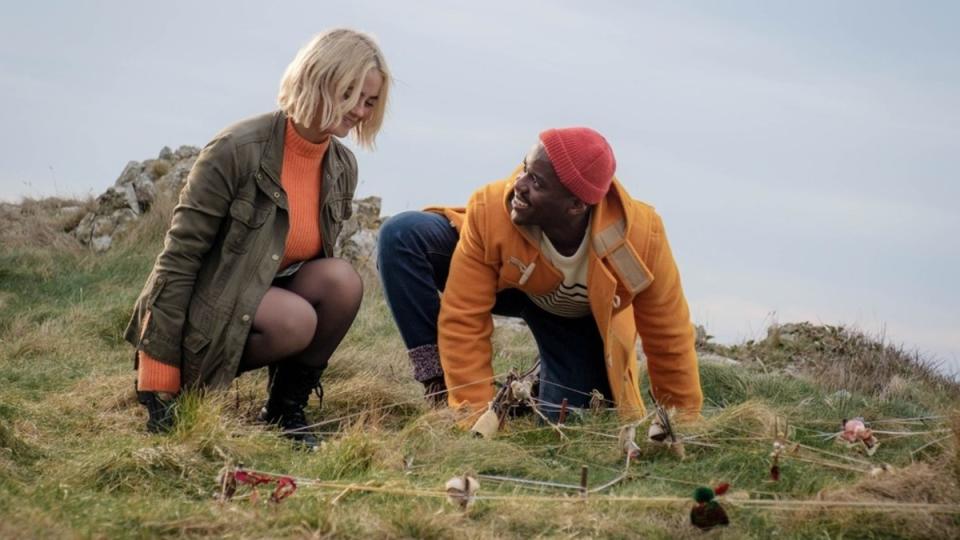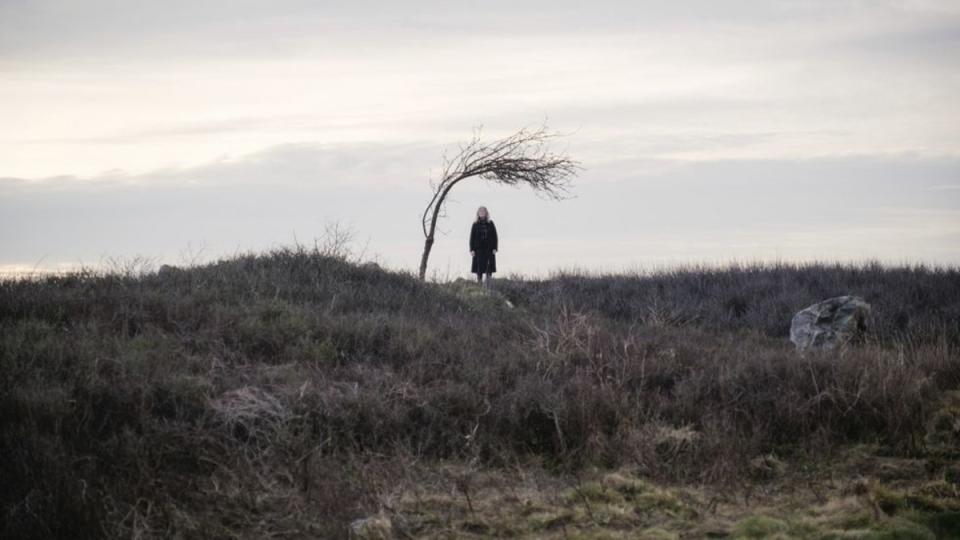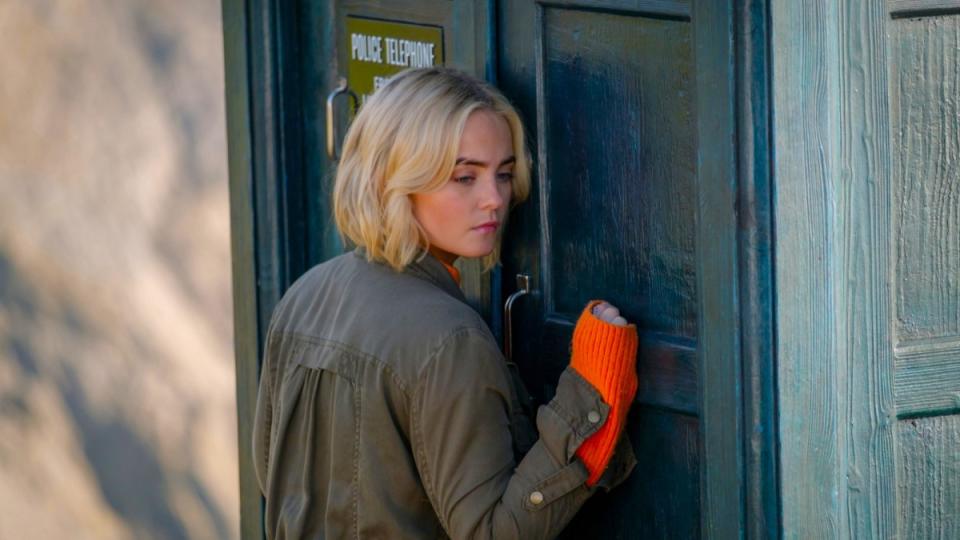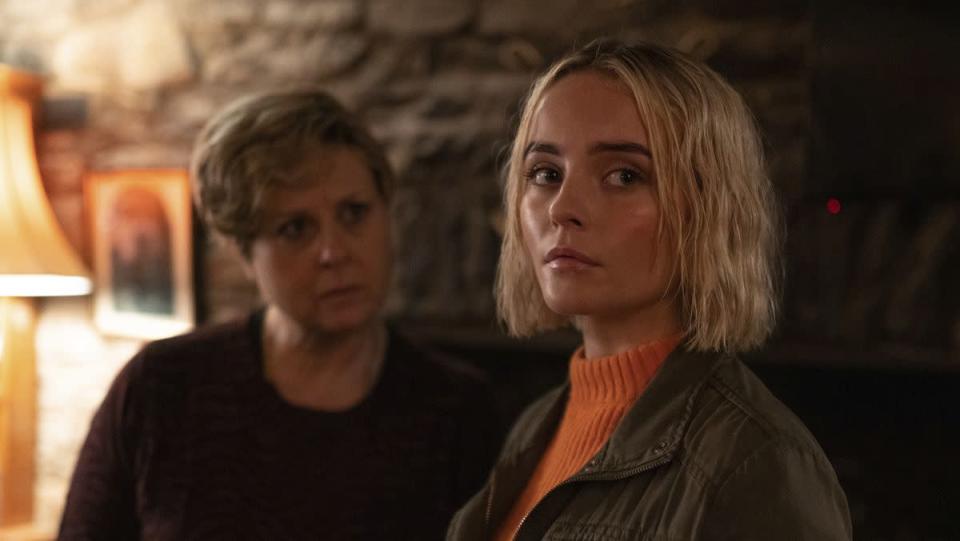Doctor Who: 73 Yards Review
Doctor-lite episodes are an interesting breed, as they always create something unique. Of course, uniqueness doesn’t always equate to goodness. On the one hand, Doctor-lite episodes include masterpieces like Blink and Turn Left, on the other, they include the travesty known as Love & Monsters.
Handing the reigns of an episode entirely over to Ruby Sunday just five episodes since she’s been introduced is a bold choice, but also a genius one given how the seasonal arc is almost entirely questions about her true nature. Still, giving the Doctor less than five minutes of total screen time is always going to push the story in strange directions.
73 Yards makes the most of it, with lots of careful steps to push you into feeling the same helplessness that Ruby experiences. The Doctor being around is like a safety blanket and removing him from the situation deprives you of his comforting warmth. It serves as an interesting parallel to Boom in many ways. Just last week we had the Doctor stuck in a horrible situation and forced to think his way out almost entirely on his own, and now we see Ruby similarly alone with a less immediately threatening, but far more sinister, mystery to solve.

BBC
This is where 73 Yards stands out though, as rather than push for loads of pulse-pounding tension, this episode moves at quite a casual pace. We spend a lot of time just hanging out in the regular world, barely even addressing the strange woman following Ruby. Even in the scene in the pub, Ruby keeps drawing attention to the woman, but the scene keeps pulling focus away from it to give us a snapshot of these ordinary Welsh people having a laugh at the Englishwoman’s expense like nothing’s wrong in the world.
It puts us in Ruby’s shoes and we feel how frustrating it is that no one is taking the issue as seriously as they should, because we know that something really messed up is going on. Each scene pushes that further as the woman causes Ruby’s own mother to abandon her, and even the relief of Kate and UNIT getting involved is cruelly swiped away from us by whatever strange power she has.
Yet rather than spiraling into hopelessness or desperation, the episode makes us confront the weird truth of life, which is that most people just get on with their lives and ignore the trouble going on around them. It’s frustrating, but also entirely understandable that Ruby eventually just gives up and starts going about her life, living 20 years without any attempt to find the Doctor or solve the mystery.

BBC
Even when Ruby gets a newfound sense of direction in uncovering who Mad Jack is and what she needs to do, the pace doesn’t suddenly pick up. That sense of mundanity remains, it’s just now Ruby has a new mystery to solve while we watch a horrible man slowly grow in power. Once again, it shows Davies’ talent for capturing the modern political climate. The idea that in 2046 some far-right candidate could be advocating for the UK to build a nuclear arsenal and pull out of NATO is exactly the pessimistic outlook I’m willing to believe.
All this casts a brilliant spotlight on Ruby, making her the kind of companion we can root for. She may never have solved the mystery like the Doctor would’ve, but she still figured out how to turn the situation to her advantage and do something she can be proud of. It makes for a joyous moment, even though we’re left with a whole host of unanswered questions.
The episode does something I think may be quite polarizing among fans – that I really like – as we see Ruby age into an old woman, fully accepting that whatever mysteries remain will never be solved. The episode properly commits to this as well, pushing the audience further and further into confusion. We all know that the status quo has to be restored somehow, but as the time remaining in the episode ticks down such a solution never seems to appear on the horizon.

BBC
It’s not until Ruby is lying on her deathbed that the nature of the woman who has been 73 yards away her entire life is revealed. The idea of a big time loop isn’t the most shocking twist, but I enjoy how it was executed here as it plays with Doctor Who’s loose idea of how time travel actually works.
It’s not like Ruby’s efforts were retconned out of existence, or time was reversed so it was like it never happened. The Ruby we follow for the whole episode really did have to live to death before she could deliver the message that would stop the whole chain of events from ever happening. Plus, Ruby’s line at the end where she remembers things happening twice leads to some fun implications.

BBC
This is a strength of this season playing more to supernatural ideas than traditional sci-fi. It allows questions to go unanswered yet still feel like a whole story. Some fans may reject that idea, but I found something powerful in the melancholic feeling I had when the credits rolled. I felt like there was more to be discovered, yet I was satisfied that the episode didn’t dig any deeper. Crucially, I was still thinking about it hours after the fact, tossing ideas back and forth in my mind; which incidentally, makes it a brilliant episode to rewatch.
With Boom last week, I came away from it instantly knowing it was one of the best Doctor Who episodes I’d ever seen, but 73 Yards is more subtle than that. I loved it, but I didn’t realize how much until I’d had the time to process it, interrogate it, watch it several times, and write up my feelings on it. It wormed its way into my head like no episode has before, with every scene carefully crafted to make you lean in and ask more questions that the episode refuses to answer in a strangely satisfying way.
